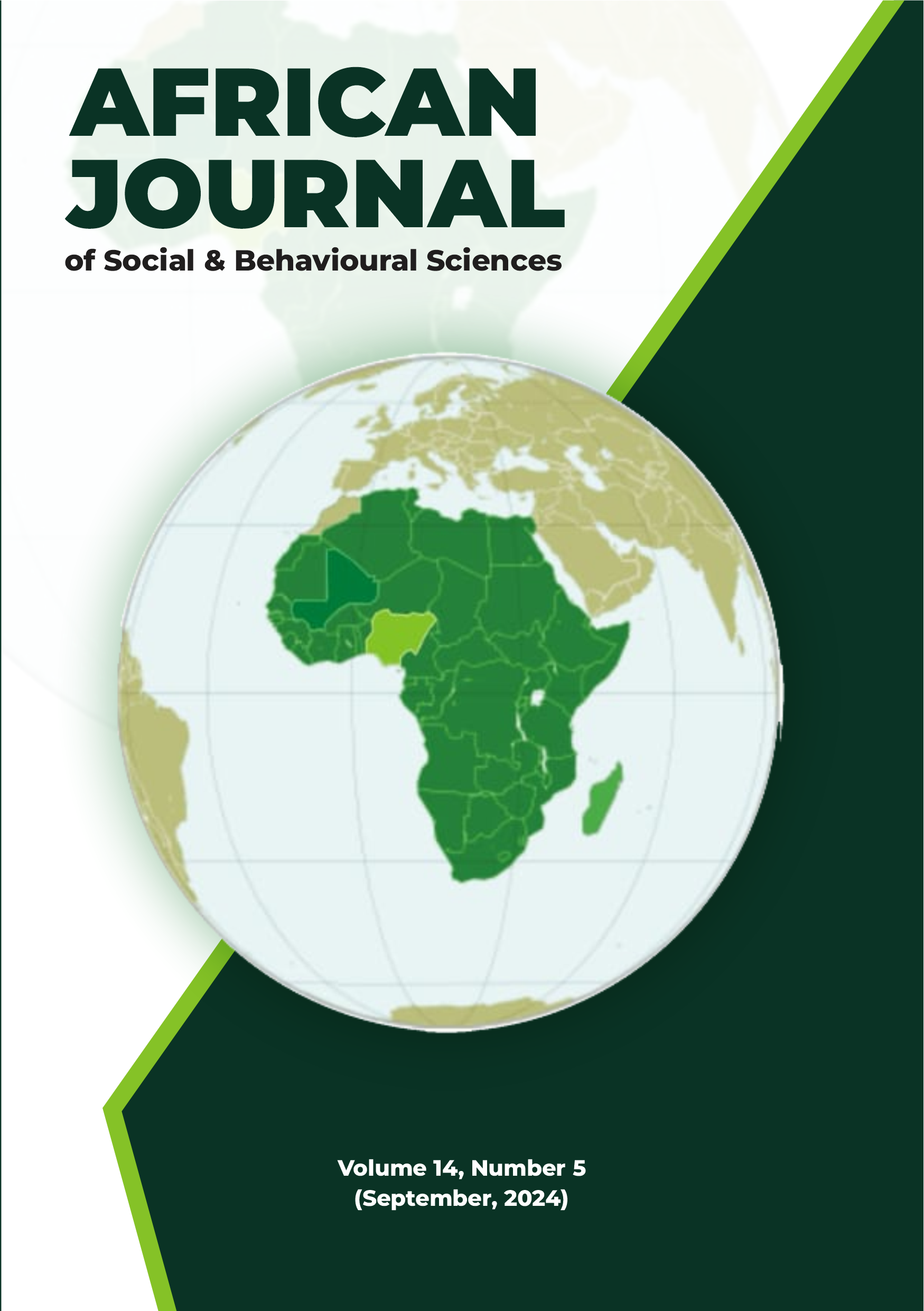RESILIENCE IN THE FACE OF FAMILY DYSFUNCTION: COPING MECHANISMS AMONG CHILDREN IN IKENNE LOCAL GOVERNMENT, OGUN STATE
Keywords:
Coping Mechanism, Family, Family Dysfunction, Resilience, Social WorkAbstract
The primary aim of the study is to explore the coping mechanisms that children
from dysfunctional families engage in to survive unpleasant situations and experiences. It also
considers the different forms of social support that children from dysfunctional families receive
as a promoting factor for resilience. Walsh’s family resilience framework was adopted in this
study. The literature review revealed three basic styles that children use to cope with difficult
and unpleasant situations: seeking support from other people, investing in close friends,
providing peer support, seeking belonging, seeking spiritual support and seeking professional
help. Additionally, resilient children have a positive attitude towards life and themselves, and
they can treat difficulties as a challenge to overcome and an opportunity for a new experience,
which in turn helps the development of their cognitive and intellectual functions. The research
design that was adopted in this research was the phenomenological research design and a
qualitative methodology. A purposive sampling technique was employed, and 25 participants
were recruited for this research study. Data was gathered through interviews/focused
discussions and was thematically analysed. The study revealed various strategies through
which children cope in toxic experiences from dysfunctional families, including speaking to
their teachers, who have interests in mind and are committed to extending support (moral
support, faith talks and prayers, reaching out to parents, financial aid) to these children.
However, it was also noted that some of these children stay away from home/stay with friends
as a way of escaping the toxic experiences of their families. Counselling is a strategy that is
used to advise and admonish children and students on suitable solutions that can be adopted
for problems of dysfunctionality.


